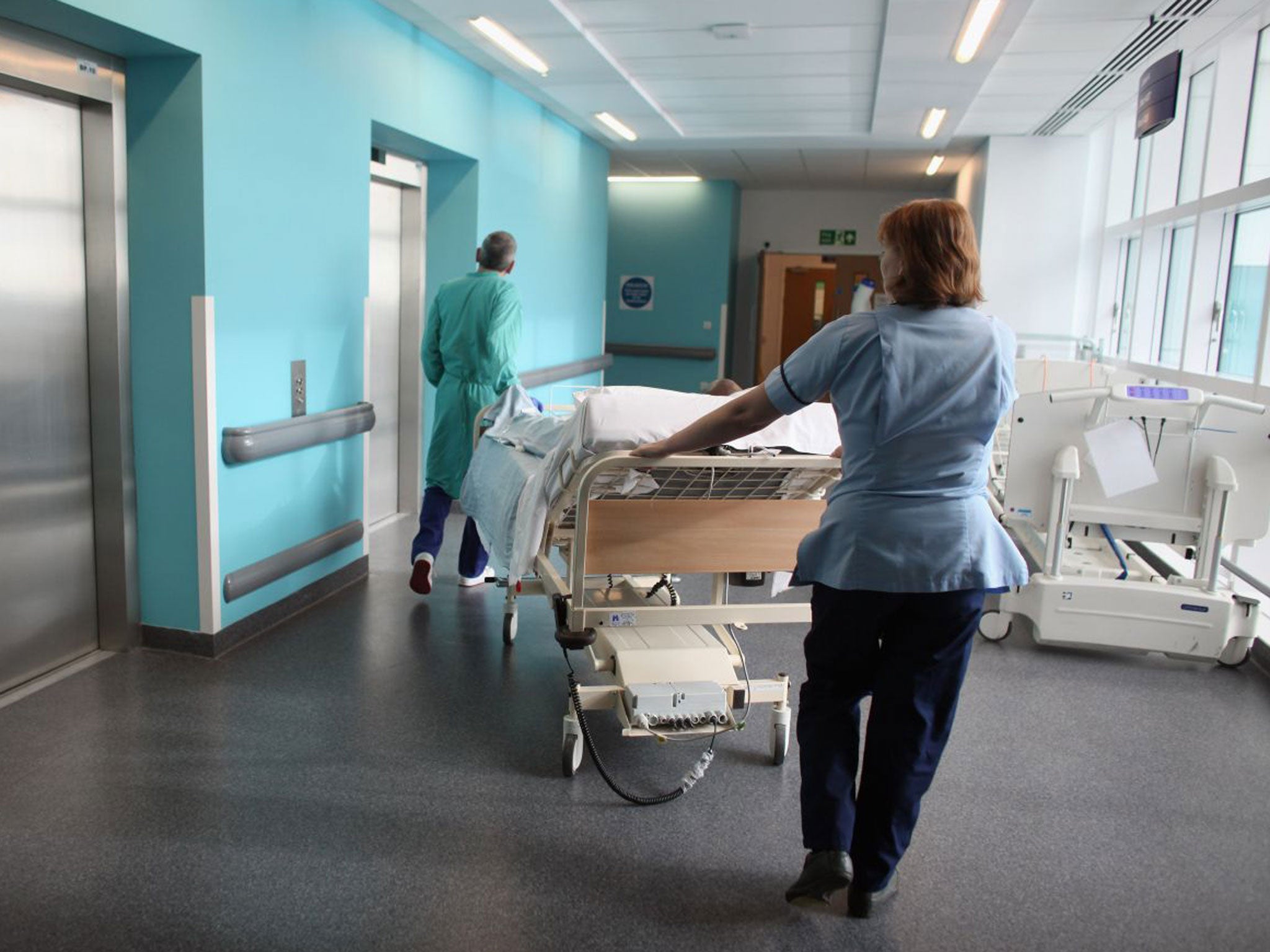Worshipping the NHS costs lives
This toxic institution, believed to be the envy of the world, has been poisoned by individuals' self-promotion at the expense of the sick


Your support helps us to tell the story
From reproductive rights to climate change to Big Tech, The Independent is on the ground when the story is developing. Whether it's investigating the financials of Elon Musk's pro-Trump PAC or producing our latest documentary, 'The A Word', which shines a light on the American women fighting for reproductive rights, we know how important it is to parse out the facts from the messaging.
At such a critical moment in US history, we need reporters on the ground. Your donation allows us to keep sending journalists to speak to both sides of the story.
The Independent is trusted by Americans across the entire political spectrum. And unlike many other quality news outlets, we choose not to lock Americans out of our reporting and analysis with paywalls. We believe quality journalism should be available to everyone, paid for by those who can afford it.
Your support makes all the difference.Imagine if an airline crashed 10 planes each year, killing 3,000 passengers in avoidable accidents; after its most disturbing disaster, wiping out 1,200 people, the two managers responsible were promoted to the firm's top jobs – one as chief executive, the other in charge of safety. Then it was discovered that the company silenced whistleblowers while covering-up serious failings that led to fatalities.
It is fair to assume there would be an immense public outcry. The airline would be grounded, the managers deservedly hounded into prison. Politicians would demand the overhaul of an industry plainly suffering profound structural flaws.
Yet this is precisely the scenario in our hallowed National Health Service, while Britons cling to a nostalgic notion that this creaking, outdated institution is the envy of the world. Perhaps, as scandal after scandal washes over the service, our nation can finally grow up and see that such myopic worship helped foster a culture of complacency kills patients.
Young and old alike are dying needlessly – eight a day, in what Jeremy Hunt, the Secretary of State for Health, rightly calls a silent scandal. The latest shocking revelation is that the official health watchdog suppressed the truth about baby deaths at a Cumbria hospital. Before, it was a report into hundreds of mainly old people dying in hideous circumstances in the bloodstained wards of two mid-Staffordshire hospitals. Regularly, there are stories of disabled people dying of discrimination; Mencap has logged more than 100 in six years.
It is beyond belief that the managers who oversaw the sordid events in mid-Staffs were rewarded with the top NHS jobs; I warned of its folly two years ago. Sir David Nicholson was the bungling local bureaucrat who failed to stop the deaths as he focused on cost-cutting and mergers – yet the entire NHS was placed in his hands. His successor was Cynthia Bower, who said the situation "wasn't on my radar" and blithely told an inquiry: "Mistakes are made, people do die unnecessarily." She was put at the helm of the body protecting patients.
The Labour Party should hang its collective head in shame at this grotesque betrayal of Aneurin Bevan's legacy. As it pumped money into the pockets of producers and delivered platitudes about patient care, ministers allowed layers of managers under this duo to calcify the system and unleash cover-ups, fear and bullying of staff. They gave GPs huge pay rises while ruining out-of-hours care, introduced a target culture that distorted clinical priorities and prevented a public inquiry into events at mid-Staffordshire.
The biggest mistake was Gordon Brown's creation of the Care Quality Commission (CQC) by merging three disparate regulators to cut costs. Obsessed with bureaucracy, this inept behemoth scaled back its core duty of monitoring hospitals and care homes; the number of inspections of adult social care institutions fell by two-thirds. A senior official admitted it took "a groundswell of opinion" to persuade them "our best evidence comes from stepping over the threshold at locations and speaking to service users and staff".
The Health Secretary has thought about killing this bloated watchdog that never barks, but concluded the last thing the NHS needed was more upheaval. That is understandable, given the experiences of his predecessor. But I fear it may turn out to be wrong, since the body remains overloaded, with 30,261 very different organisations at 49,528 locations under its guard – although at least the new boss admits it is not fit for purpose.
Mr Hunt deserves credit for trying to create a body aggressively on the side of patients while seeking severe consequences for anyone suppressing evidence of wrongdoing. Yet already the new CQC chief executive is tarnished by poor handling of the latest cover-up, and hospitals are earmarking money to "facilitate" visits by inspectors. And yes, Mike Farrar, the senior manager accused of failing the Cumbrian families has landed another top NHS post.
So how do we restore honesty and transparency to a health service that seems to rely on the tenacity of bereaved families and brave whistleblowers to expose deadly flaws? There will, of course, always be mistakes. The key is to empower staff to feel confident to challenge them, while remoulding services around the needs of patients with reforms such as personal budgets for long-term and complex conditions.
I saw some clues at Hinchingbrooke, the first NHS hospital run by a private provider, which cut costs while improving services by reducing the number of managers and restoring responsibility to clinical staff. It also imported a famous quality-control system from Toyota that encourages workers to stop production if they see a fault. Two weeks after its introduction, theatre nurses halted a senior consultant during an operation after they suspected a swab was missing; it was found in the patient's body.
We need to move beyond sterile debates over the sanctity of the NHS and perils of privatisation to address fundamental questions of how to evolve a 21st-century health service at a time of austerity. The NHS was designed for a post-war world that no longer exists and fails too many patients most in need of care. Costs are outpacing budgets and, as society ages and medicine advances, these pressures will only grow more intense. The alternative, with sickening inevitability, is more shameful scandals, more shocking cover-ups and more senseless deaths.
Join our commenting forum
Join thought-provoking conversations, follow other Independent readers and see their replies
Comments